Ten years after it aired, I re-watched the first season of True Detective. Nothing was as I had found it the first time. It was more than a story masterfully told. The show revealed itself as a work of prophecy about a world much stranger than our rational minds like to admit. True Detective is about the price we pay, collectively and individually, for being asleep or waking up.
I don’t watch much TV these days, but I used to. The couch, pizza, a beer, Netflix, or HBO — that was my escape after work. If I had to be awake, I wanted to be comfortably numb. Let a story carry me away into pleasant unconsciousness. I wanted to avoid feeling the yawning void inside. Work hard, dissociate hard.
That was more than a decade ago and the first season of True Detective was a favorite of mine. I loved Rust Cohle’s edgy nihilism delivered by Matthew McConaughey in sparkling monologues. Rust saw humanity trapped in an endless loop of suffering, the infamous flat circle. He smelled the world’s corruption and verbally carpet-bombed his fellow humans “laboring under the illusion of having a self.” I loved the show because it echoed how I felt.
Or rather, I loved it until the finale.
During the showdown, Rust nearly dies. He has a vision of, or encounters, a ‘cosmic spiral’ and feels the presence of his dead daughter’s soul. His partner Marty picks him up at the hospital and meets a man who was changed, if not healed, from his visit to the underworld. When Marty points out the vast darkness of the night sky, Rust responds that he has it wrong — “once there was only dark. You ask me, the light's winning.” Nihilism turns to hope.
That ending killed me.
I felt betrayed as if Rust had left my camp and switched sides. I wanted back Rust the cynic, the pessimist who saw life like the eternal loops of Dante’s hell. I needed that because I was still walking in circles.
It’s ten years later and this time, I found a deeper layer, a story within the story.
Rust: It's just one story
Marty: What’s that?
Rust: The oldest. Light and dark.
It is indeed the oldest story, but it is not “good versus evil.” Two detectives uncovering a conspiracy and chasing a killer? That’s surface-level stuff.
That’s like being stuck in Marty’s mind, gazing indifferently at the bayou, thoughts drifting to the prospect of a cold beer.
No, this is about the oldest story — the most important of stories as the world is caught in a strange and messy (re-)awakening of spirit.
To understand True Detective — to understand what is happening — we must turn to Rust. What is he looking at? Or better: what is looking at him?
Nothing about the show was more controversial than its subtle hints at supernatural phenomena. Those moments must be interpreted as metaphors, projections of the psyche, people insisted. There were parts of the dream inside the “locked room of the mind,” as Rust would put it. But if you open that locked room just for a moment and ask what those moments could have meant, True Detective reveals itself as an infinitely richer and more interesting experience (the same is true for life).
Rust Cohle is more than a lonely warrior-monk detective. He is, for lack of a better word, a kind of intuitive or psychic.
Rust didn’t choose his shift in consciousness. Unlike a lot of people experimenting with substances and modalities like psychedelics, meditation, or breathwork, Rust’s path was accidental. He bumped into his awakening during a near-death experience, but not the one at the end of the show.
No, to look behind the veil of True Detective, we must take a step back. By the time the story begins, Rust has already been through the depths of a hero’s journey, albeit one that never properly concluded.
Rust loses his daughter in a car accident (or accidentally caused the accident? I was never clear about that). His marriage and life collapse. He joins narcotics, goes undercover, and enters the dragon’s cave. Rust faces manifest evil in the form of drug traffickers who torture, murder, and poison for pleasure and profit.1
His hero’s journey concludes with a shootout during which he gets hit three times. Rust recovers and declines to retire. He asks to join a homicide squad (which means to act on behalf of the dead) and is transferred to Louisiana. True Detective begins.
This is the near-death experience that matters. It is Rust’s involuntary initiation. He returns from the underworld with a perception of the subtle realm, speaking for the dead, taking confession, and communing with the mystery. But upon his return to the village, he finds the place destitute, like “somebody’s memory of a town, and the memory is fading.”
Rust finds himself fully awake to the human condition yet utterly alone and unhealed. Like a shaman with a badge, he carries his cross through a “giant gutter in outer space.”
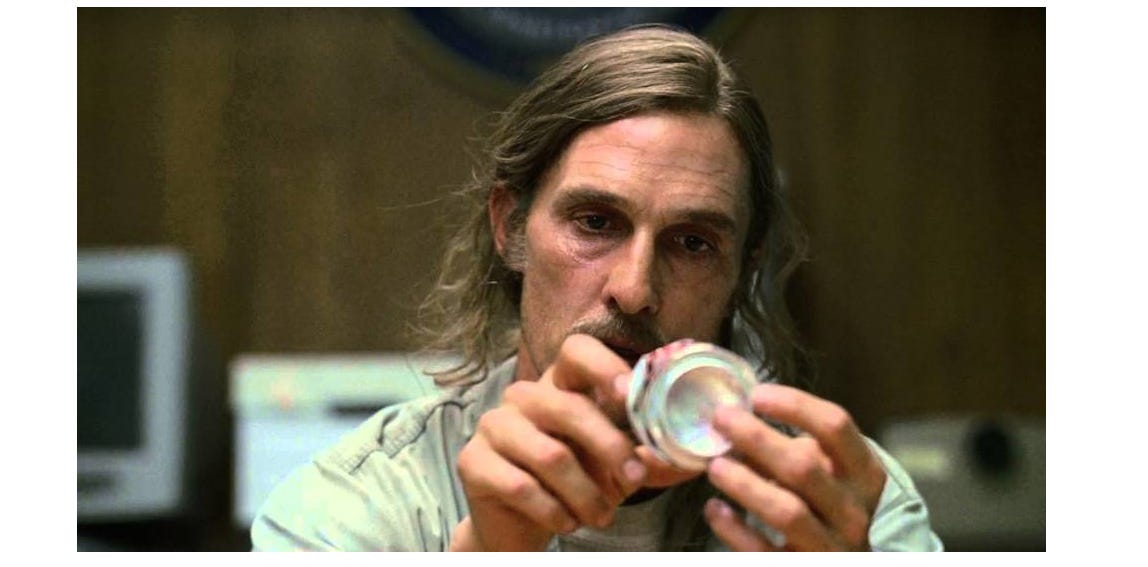
Throughout the case, Rust receives guidance — birds fly in spirals, lights trace the sky, and a glow leads him to the backyard shed with the ‘devil trap.’ He dismisses these signs as hallucinations, as flashbacks from his drug use while being undercover. “Most of the time I was convinced I'd lost it,” he says. “But there were other times... I thought I was mainlining the secret truth of the universe.” Plot twist: What if he was?
After visiting the first crime scene, Rust comments on smelling the psychosphere, an imaginary subtle layer of reality reflecting our collective thoughts and emotions (which Marty mishears and later hilariously references as “smelling a psycho’s fear”). To Rust, it tastes like “aluminum, ash.” It’s polluted and corrupted (there’s an excellent post exploring this idea). This subtle perception reasserts itself at the very end of the show when the two detectives arrive at the suspect’s property for the showdown. “This is the place,” Rust tells Marty.
Rust also enters detention cells, speaks to the suspects of grace and forgiveness, mentions the “weight” that has its “fishhooks” in the heart and soul, and then, like a priest, takes their confession. How come?
He rejects the “language virus” of religion and denounces both preachers and therapists for selling false hope. People project their “fear and self-loathing” to the “authoritative vessel” of the priest. Is he just cynically using this and putting himself in the position of the “vessel” to do his job as a cop? I think there’s more to it. Rust is the one character who truly knows his nature.
Marty: You wonder ever if you're a bad man?
Rust: No. I don't wonder, Marty. The world needs bad men. We keep the other bad men from the door.
Because Rust does not project his inner world onto others (in stark contrast to Marty) he can truly see others.2 He can read people like they’re open books. “Everybody wears their hunger and their haunt,” as he puts it.
Everybody knows there’s something wrong with them. They just don’t know what it is. Everybody wants confession, everybody wants some cathartic narrative for it. The guilty especially. And everybody’s guilty.
I believe the guilty recognize that he is different. For a precious moment, they feel seen. The weight of conscience feels a little lighter. Rust exchanges a glimpse at real connection for a confession.
Consider that there are other characters who recognize that Rust is no ordinary cop. Like Rust, they know their nature. Unlike him, they are the bad bad people, dark priests of violence and suffering — murderers, meth cooks, pedophiles.
Reggie Ledoux recognizes Rust from a dream, sees a “shadow” on him, and shares with him the metaphor that “time is a flat circle.” Dewall Ledoux claims he can see Rust’s “corrosive soul” at the edges of his eyes and immediately senses the detective’s trap. Errol Childress calls Rust a “little priest” and invites him into his labyrinth to die together. These are the twisted minds who immediately sense that Rust is awake inside the dream. Unlike Rust, they relish the poisoned psychosphere’s fumes.
Meanwhile, True Detective has no mercy to the self-proclaimed men of God. Reverend Tuttle is an incarnation of evil, the tent preacher deluded and clueless. There’s “always a buck to be had,” Rust says, in encouraging people’s “capacity for illusion.” The tent preacher is interesting because Rust later finds him despondent and in the numbing embrace of alcohol. “All my life I wanted to be nearer to God,” he says. But “the only nearness is silence.”
Rust however is comfortable in that silence. Organized religion may appear to him as a grift, a front for evil, or a simple delusion, yet he remains otherworldly. He maintains an odd meditation practice, staring at a tiny mirror and contemplating “the moment in the garden, the idea of allowing your own crucifixion.”
In the show’s supreme irony, Rust walks with the sacred — or it with him — yet he denies its existence at every step.
His story is the tragedy of an awakened soul trapped in the mind of a rational modern man. The only signs of the sacred he encounters are totems of sacrifice and suffering. Rust is left with half the Tao: all suffering, no joy. He could have been a Bodhicitta but instead turns into a Bodhicynic: awake to the suffering of the world and participating in it, but not joyfully.
Interestingly enough, a deep spiritual connection was required to venture deep into the maze of Rust’s experience.
“I was as strong, spiritually, [in] my relationship with God, when I did True Detective, as I've ever been,” Matthew McConaughey recounted. This allowed him to “jump in the pool” and go “further away, deeper into the torture” with the confidence he would emerge on the other side.
Rust, he points out, “was not an evil man. I don’t even know if you can call him a non-believer. But he was always going after the truth. And the truth burns. And he would take the scar and get burned for it. He’d die for it.” Rust was ready to pay the ultimate price but there is a price to be paid for remaining asleep as well.
The show’s creator Nic Pizzolatto explained that True Detective was about storytelling and supernatural thought only “to the degree that it was concerned with storytelling.” “As human beings,” he noted, “we are nothing but the stories we live and die by. So you'd better be careful what stories you tell yourself.”
The oldest story is not good against evil but mankind staring at the night sky, wondering what it all means. If we decide there is no meaning, the world we create will reflect that. It will be filled with what Rust calls our “desperate sense of entitlement.”
Surely this is all for me? Me, I’m so fuckin important. Right? There are broader ideas at work. Mainly, what is owed between us as a society for our mutual illusions.
The price to be paid for this illusion is a life spent asleep and in denial. It is the price of escapism, of numbing ourselves with entertainment, alcohol, sex, drugs, and whatever else we can get our hands on.
True Detective explores what happens when a culture loses the plot. It finds that there is a void and that the void begins to swallow the souls of the innocent. What do we owe, collectively, for failing to notice what the Rust Cohle’s of this world see and feel so clearly? What is the price to be paid for poisoning the psychosphere?
What does it mean to feel the presence of a deeper intelligence behind the veil of the visible? What is it like to sense subtle forces at work in the form of signs and synchronicities? I found it deeply disorienting and isolating. This is why today I see True Detective as a cautionary tale about waking up in a world stuck to screens and self-centered dreams.
Rust returns with gifts he can’t explain (or accept) and with truths nobody wants to hear. He is a kind of shaman with a badge, a stellar investigator but utterly alone with his experience. His nihilism is the anguished cry of someone stuck in a nightmare. He walks his flat circles through the wasteland with alcohol as his companion.
Rust enters the labyrinth a second time and confronts the child-devouring minotaur in the form of Errol Childress. But what concludes his arc is his return to the liminal world of near-death and the chance to reconnect with the force of love in the form of the soul of his daughter. What shows his evolution as a character is that he shares this experience with Marty. He chooses a different story and the price he pays changes from isolation to vulnerability.
Only by sharing can we find like-minded souls. Only by opening up about our disorienting journey and the price we have been paying can we connect. Only by connecting can we create new communities. If only Rust had used the internet to connect with a tribe of fellow weirdos…
For that is the message of the night sky: that there is as much hope today as there was when the first humans looked at it.
One can see in it a cold and distant universe or eternal beauty. One can feel lost in its vastness or sense a subtle yet pervasive force of consciousness or love. This is not about “reality” but about the story we tell ourselves in the “locked room of the mind.” Choose carefully. There is a price to be paid either way. And remember that it may be too much to bear for any one soul on its own — even one as tough as Rust Cohle.
He tells Marty about cartel henchmen who skinned their victims alive.
Marty’s wife Maggie points out that Marty “never really knew himself” and hence “never really knew what to want” (and projects his issues onto Rust). Rust is well aware of the issue: “You know, people that give me advice, I reckon they're talking to themselves.”

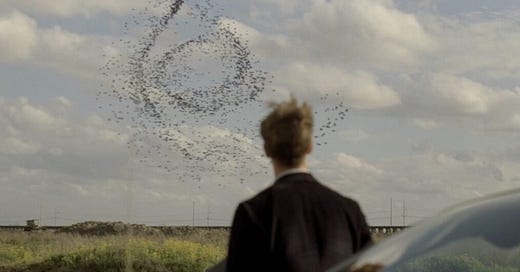


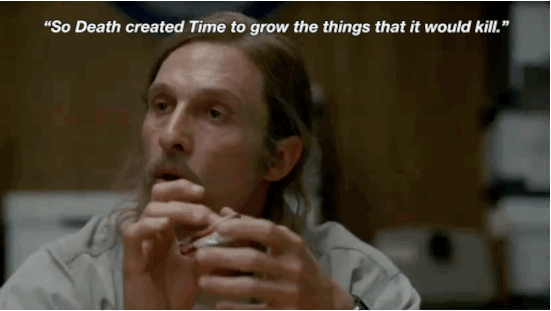
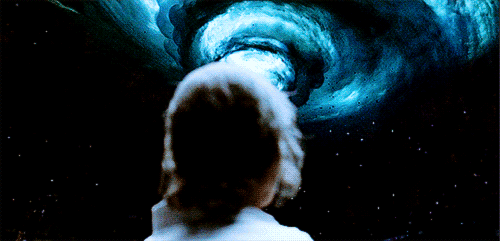

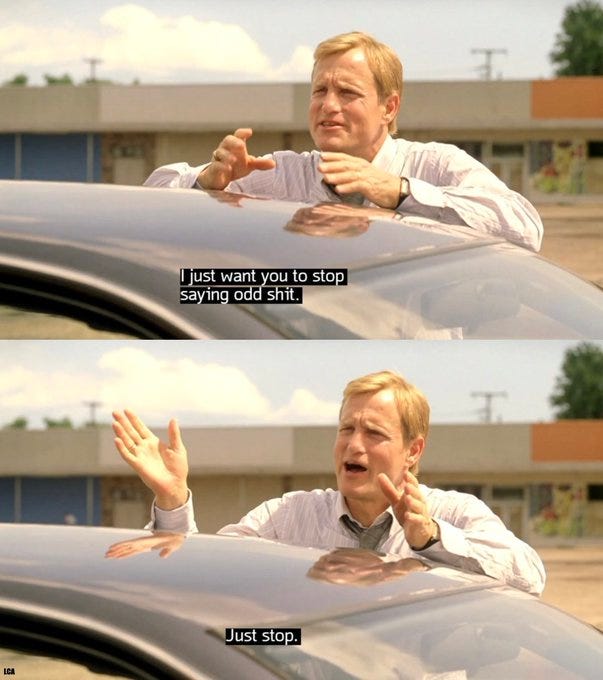
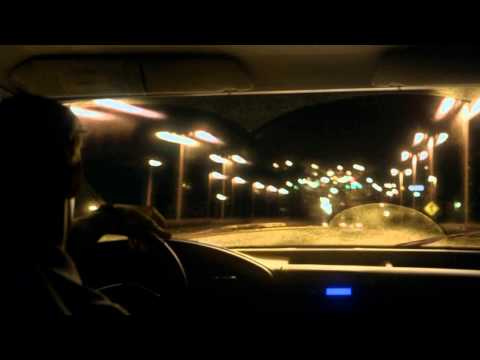
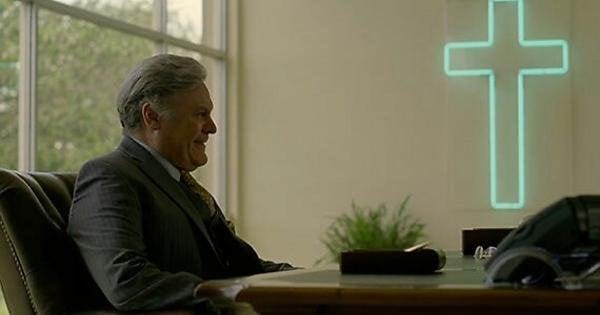
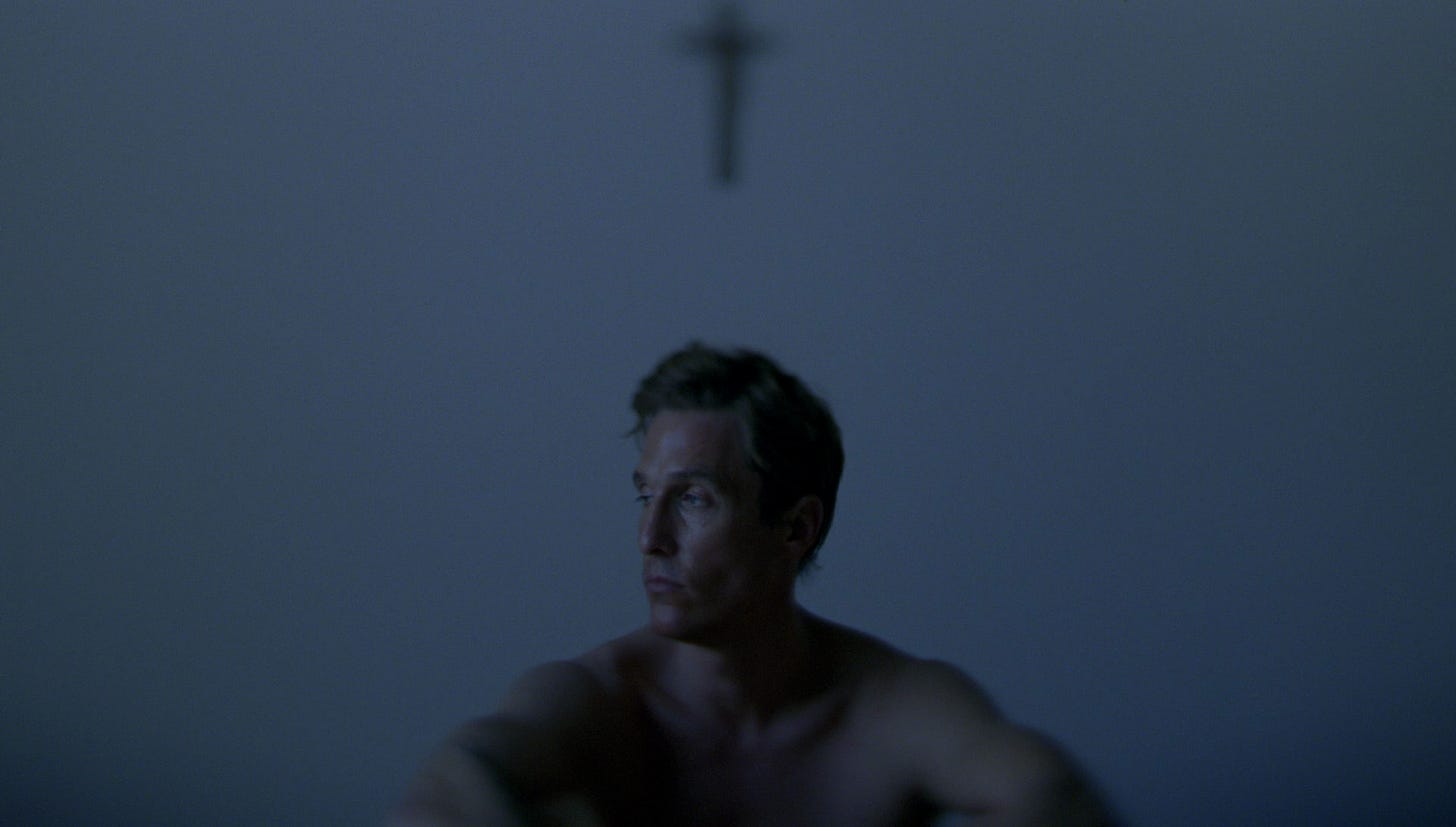
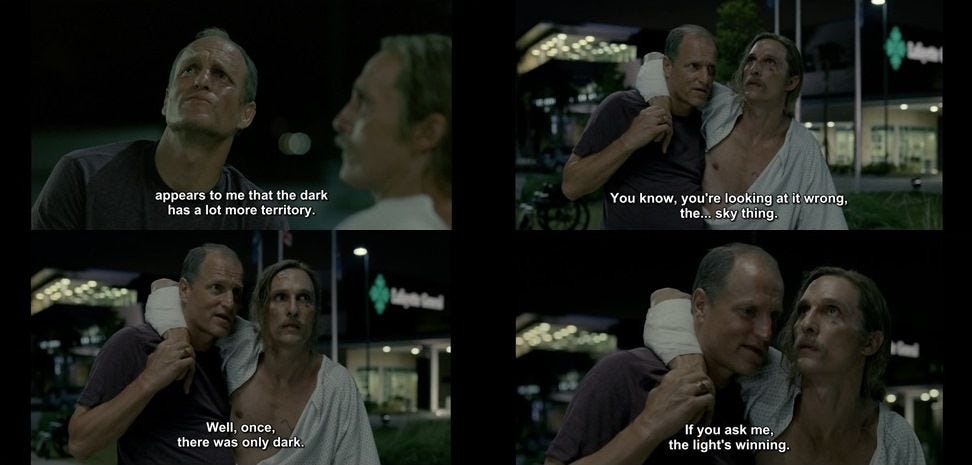
The real power of True Detective is how it forces us to confront the stories we tell ourselves. Rust Cohle's journey is more than a gritty crime thriller—it's a battle between the narratives of despair and hope, nihilism and awakening. That switch from “time is a flat circle” to “light’s winning” isn’t a betrayal; it’s an evolution. It’s about moving from cynicism to vulnerability, from isolation to connection.
We all get trapped in our own "locked rooms," cycling through the patterns and beliefs that keep us comfortably numb. Rust wakes up, and in doing so, he tears open the comfort of denial. But to see life as just a series of endless loops is to miss out on the possibility of transformation. Sometimes the price of waking up is realizing just how long you've been asleep.
My all-time favorite show. This was an interesting review- thank you!